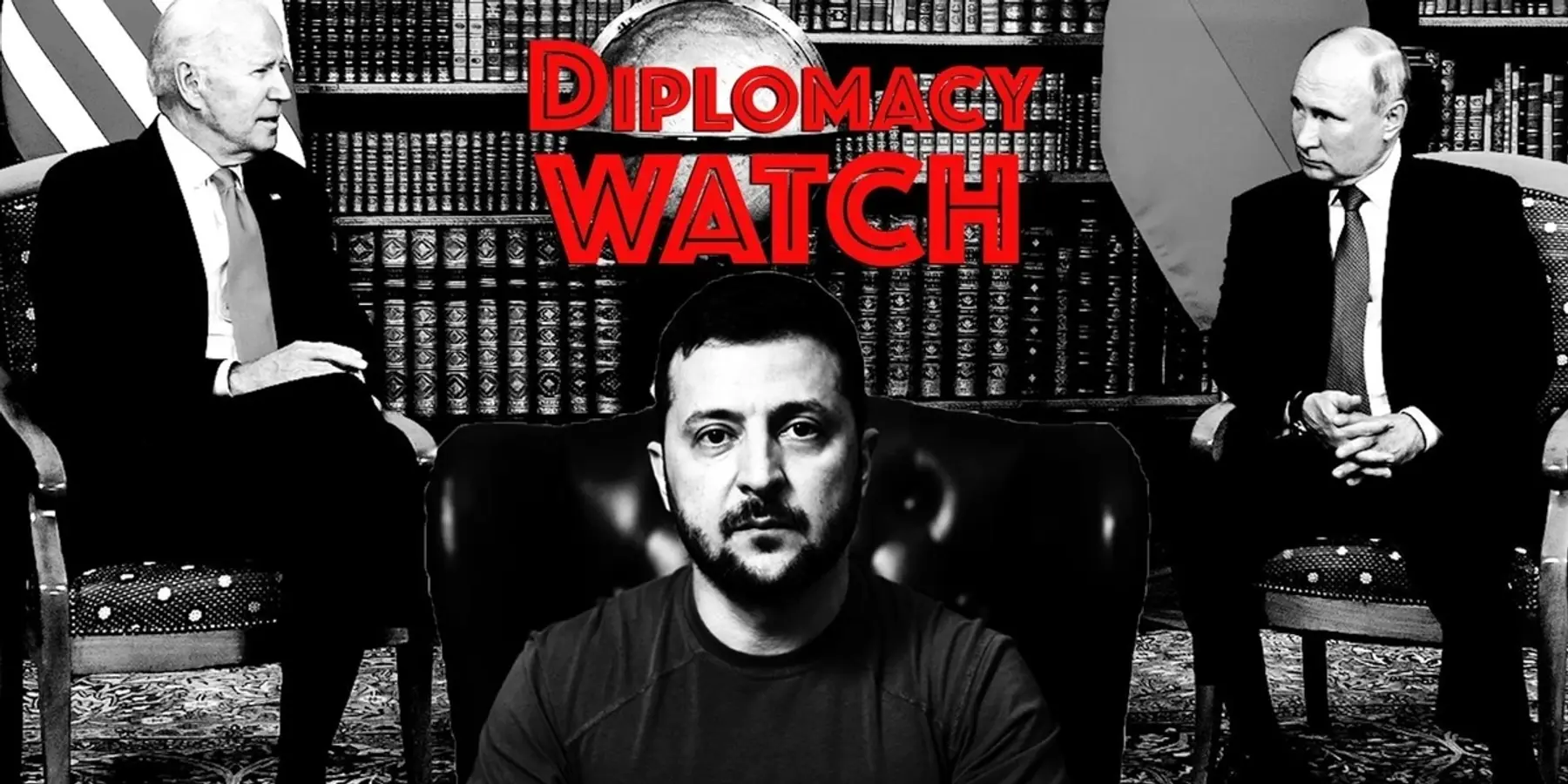Kyiv and Moscow both hinted this week at their shifting expectations and preparations for a potentially approaching conclusion to the Ukraine War, amid a frantic push from the Biden administration to “put Ukraine in the strongest possible position” ahead of President-elect Trump’s inauguration in January.
National security adviser Jake Sullivan reiterated this goal as part of a Dec. 2 White House announcement of $725 million in additional security assistance for Ukraine, which will include substantial artillery, rockets, drones, and land mines and will be delivered “rapidly” to Ukraine’s front lines. The Kremlin said on Tuesday that the new package shows that the Biden administration aims to “throw oil on the fire” of the war before exiting office.
Later in the week, House Speaker Mike Johnson told reporters he has no plans to give in to a Biden administration request to include $24 billion in additional Ukraine aid as part of a short-term spending bill that Congress must pass by Dec. 20.
“It is not the place of Joe Biden to make that decision now,” Johnson said. “We have a newly elected president, and we’re going to wait and take the new commander-in-chief’s direction on all of that, so I don’t expect any Ukraine funding to come up now.”
Ukrainian President Volodymyr Zelensky’s rhetoric made a subtle shift in the past week, signalling now that he is open to negotiating a peace deal. In an interview over the weekend, he suggested a potential cessation of the lands Russia has seized in exchange for a NATO invitation, with the hope of winning the rest of the territory back “in a diplomatic way.”
Kyiv made this known at a NATO foreign ministers meeting on Tuesday, saying it will not settle for anything less than NATO membership in any future negotiations. Ukrainian Foreign Minister Andrii Sybiha referenced Ukraine’s pact with major powers 30 years ago exchanging its nuclear arms for security guarantees it has not received — and only would with NATO membership.
Diplomats sidestepped the call, with several officials saying there remains a lack of consensus in the alliance. Latvian Minister of Foreign Affairs Baiba Braze said NATO political leaders have agreed “in principle” for Ukraine to join the alliance, according to Al Jazeera, but are waiting on Trump’s administration to take office before moving forward.
Russian officials have increasingly hinted at the materialization of peace talks with Ukraine as well; on Monday, Valentina Matviyenko, the speaker of Russia’s upper house of parliament, said there could be attempts at peace talks with Ukraine next year.
Still, the Kremlin remains adamant that the conditions are not yet right for talks. Russian spokesperson Dmitry Peskov thanked Qatar and “many” other countries on Wednesday for their interest in hosting Ukraine peace talks, but said “there are no grounds for negotiations yet.”
Other Ukraine News This Week
Russian President Vladimir Putin approved a 2025-2027 Russian military budget, which includes a 25% increase in military spending, CNN reported. The budget allocates 32.5% of total government spending to the military, a total of $126 billion, for 2025 alone.
Russian and Ukrainian forces have continued heavy exchanges this week, principally in the form of drone attacks, according to Al Jazeera. Russian forces have attacked critical infrastructure The Russian Defence Ministry said this week that its military gained control over the towns of Illinka, Petrivka, Kurakhove, and Novodoarivka in eastern Ukraine.
ABC News reported that the Russian Navy tested new-generation hypersonic missiles, the Zirkon antiship missile and the Kalibr cruise missile, as part of a series of exercises in the eastern Mediterranean Sea on Tuesday. Putin told Russian state media the Zirkon weapon has “no analogues in any country in the world,” according to BBC.
NATO chief Mark Rutte told reporters on Tuesday ahead of the foreign ministers’ meeting that the alliance will step up intelligence sharing and infrastructure development to counter “hostile” acts by Russia and China including “sabotage, cyberattacks, disinformation and energy blackmail.”
NATO concerns about “hybrid” attacks connect to various events throughout the past several months, including an ongoing probe as to whether a Chinese freighter’s severing of two fiber-optic cables in the Baltic Sea last month was sabotage. According to Reuters, China has expressed readiness to assist in the investigation, and Russia has denied involvement in the incident as well as other accusations of sabotage.
From State Department Press Briefing on Dec. 2
State Department spokesperson Matthew Miller said “Ukraine’s future is in NATO,” saying they’ve made “great progress” on the outlined path towards membership but also that there is more work they need to do.
“I don’t want to preview any actions that we will take at this meeting, but certainly every time we can get together as allies and to talk with our Ukrainian counterparts, it’s an important step along that road towards NATO membership,” Miller said.
















